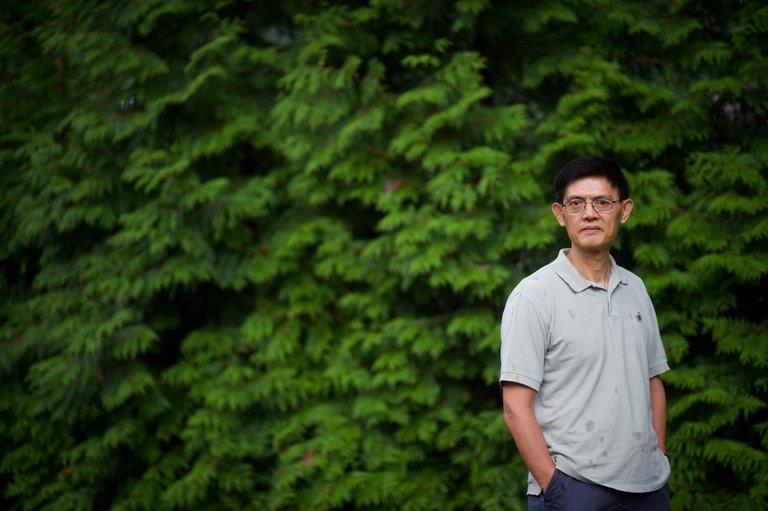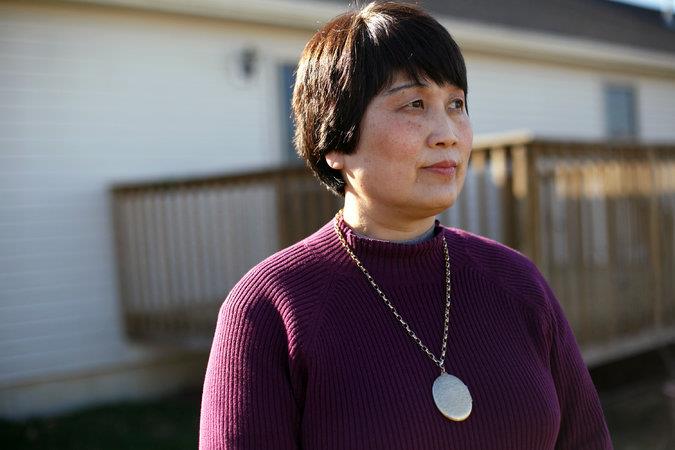
The Justice Department last year dropped all charges against Xiaoxing Xi, head of Temple University’s physics department; he had been accused of sharing sensitive American-made technology with China.
WASHINGTON — The Justice Department has issued new rules that give prosecutors in Washington greater oversight and control over national security cases after the collapse of several high-profile prosecutions led to allegations that Chinese-Americans were being singled out as spies.
The new rules are intended to prevent such missteps, but without undermining a counterespionage mission that is a top priority for the Obama administration.
In December 2014, the Justice Department dropped charges against two former Eli Lilly scientists, Guoqing Cao and Shuyu Li, who had been accused of leaking proprietary information to a Chinese drugmaker. Three months later, prosecutors dropped a case against Sherry Chen, a government hydrologist in Ohio who had been charged with secretly downloading information about dams.
Then in September, the Justice Department dismissed all charges against a Temple University professor, Xiaoxing Xi, after leading physicists testified that prosecutors had entirely misunderstood the science underpinning their case.
“We cannot tolerate another case of Asian-Americans being wrongfully suspected of espionage,” Representative Judy Chu, Democrat of California, said last fall. “The profiling must end.”
While those cases raised the specter of Chinese espionage, none explicitly charged the scientists as spies. The cases involved routine criminal laws such as wire fraud, so national security prosecutors in Washington did not oversee the cases.
In a letter last month to federal prosecutors nationwide, Deputy Attorney General Sally Q. Yates said that would change. All cases affecting national security, even tangentially, now require coordination and oversight in Washington. That had always been the intention of the rule, but Ms. Yates made it explicit.
“The term ‘national security issue’ is meant to be a broad one,” she wrote.
Ms. Yates told federal prosecutors that consulting with experienced national security prosecutors in Washington would help “ensure prompt, consistent and effective responses” to national security cases.
The letter, which was not made public, was provided to The New York Times by a government official.
John P. Carlin, the Justice Department’s top national security prosecutor,reorganized his staff in Washington in recent years to focus more aggressively on preventing theft of America’s trade secrets. The new rules mean that espionage experts will review cases like Dr. Xi’s. Such cases “shall be instituted and conducted under the supervision” of Mr. Carlin or other top officials, the rules say.
Peter R. Zeidenberg, a lawyer for the firm Arent Fox, who represented Dr. Xi and Ms. Chen, called the new rules “a very positive step.”

Sherry Chen, a government hydrologist in Ohio, was charged with economic espionage in 2014. The case was dropped five months later. CreditMaddie McGarvey for The New York Times
“It’s welcome, and it’s overdue,” he said. “A bad reaction would be ‘We’re not going to do anything. Everything is fine.’ ”
Several of the cases fell apart when defense lawyers confronted prosecutors with new evidence or previewed the arguments they planned to make in court. In traditional white-collar criminal investigations, those conversations between prosecutors and defense lawyers often happen before charges are filed. In cases involving even a whiff of espionage, however, such conversations rarely happen. Authorities worry that suspects, tipped off to the investigation, will run or destroy evidence.
The absence of those conversations makes it important, then, that such cases receive an extra layer of review, defense lawyers said.
Ms. Yates did not mention the botched cases in her letter. But at the Justice Department, they were regarded as unfortunate — and perhaps preventable — black eyes that detracted from a string of successful espionage prosecutions. The United States faces an onslaught of economic espionage and other spying from China. Last year, Chinese hackers stole a trove of government data — including Social Security numbers and fingerprints — on more than 21 million people.
Last month, Su Bin, a Chinese businessman, pleaded guilty to trying to hack into American defense contractors to steal information on the F-22and F-35 fighter jets and Boeing’s C-17 military cargo plane. In January, a Chinese citizen pleaded guilty to trying to steal corn seeds from American companies and ship them to China to replicate their genetic properties.
In the Obama administration’s most direct confrontation with China, the Justice Department in 2014 charged five members of the Chinese People’s Liberation Army with hacking into prominent American companies.
Mr. Zeidenberg and others have argued that rushed cases create suspicion and unfairly tarnish reputations. In the case against the Eli Lilly scientists, prosecutors were unsparing in their description.
“If the superseding indictment in this case could be wrapped up in one word, that word would be ‘traitor,’” Cynthia Ridgeway, an assistant United States attorney, told a federal court in Indiana last year, according to the Indianapolis Business Journal.
The Justice Department gave no explanation for later dropping the case, saying only that it was done “in the interests of justice.”
Prosecutors made a similar statement last year when dropping charges against Dr. Xi. The dismissal suggested investigators did not understand and did not do enough to learn the science before they brought charges. Prosecutors had accused Dr. Xi, chairman of Temple’s physics department, with sharing schematics for a piece of American-made laboratory equipment, a pocket heater, with China. After leading scientists — including the inventor of the pocket heater — testified that the schematics showed an entirely different type of heater, the Justice Department dropped the case.
Though prosecutors dropped charges against Ms. Chen, the government has said it intends to fire her. She is fighting that decision.(source:New York Times)



 为什么华裔第一代和第二代有那么大的反差?
为什么华裔第一代和第二代有那么大的反差?